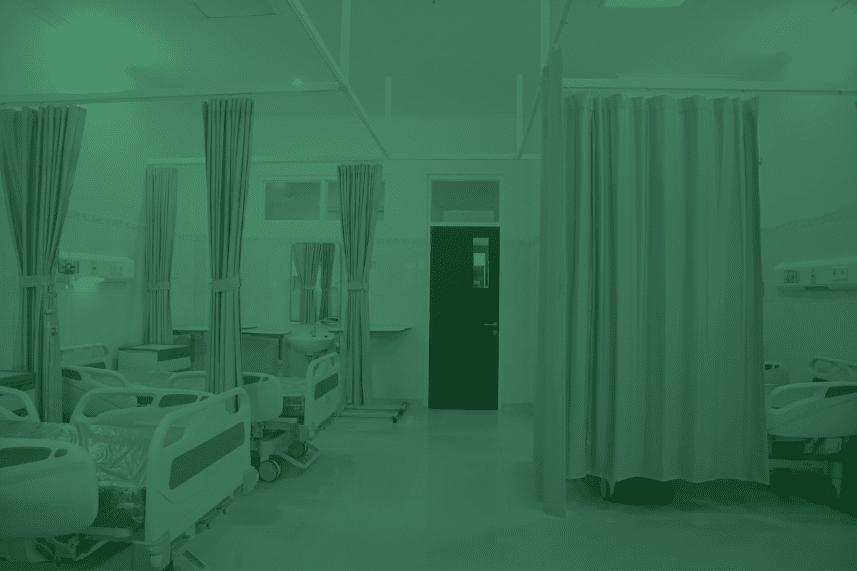Hospital endowments are a form of equitable access to health for the community, especially for those with limited treatment funds. The critical role of this hospital has also been recognized in ancient times. In the context of Islam, hospital endowments become an inseparable part of social and humanitarian concepts.
Islamic history has recorded several hospital endowments that have provided many benefits to the society of its time. Three of them are Al-Adaudi Hospital (Baghdad), An-Nuri Hospital (Damascus), and Al-Mansuri Hospital (Cairo). In this article, we will discuss the concept of hospital endowments and review the history of the three famous waqf hospitals. Not only that, we will also discuss the relevance and benefits of endowments to build hospitals today.
Hospital Waqf Concept
Waqf is a jariyah practice that gives some property for the public interest. Hopefully, we can get blessings from Allah SWT. One form of endowment that has excellent benefits is hospital endowment.
Hospital endowment is a form carried out by endorsing a hospital building or part of its assets. This waqf concept aims to improve the accessibility of health services for people in need, especially those less fortunate.
Entrusted hospitals function as health institutions that provide a wide array of medical and medical services to the community, regardless of their social status, religion, or wealth.
Through endowments, philanthropists contribute to building and maintaining sustainable health facilities so future generations can benefit. This waqf system reflects the spirit of mutual assistance and social care in Islam, where each of us is invited to participate in improving the quality of life of others.
Baca Juga: Kisah Wakaf Abu Thalhah yang Mencintai Kebun Bairuha’
3 Hospital Endowments in Islamic History
History has proven how much benefit hospital endowments have on improving public health. Also, some of these hospitals have become centers for the education and development of medical science. In the following, we will explore three famous hospital endowments in Islamic history.
Al-Adaudi Hospital, Baghdad
In the 9th century AD, in 982 AD, during the Abbasid Caliphate, ‘Adūd al-Dawlah, the leader of the Buwaihi dynasty, built Al-Adaudi Hospital in Baghdad. This hospital became one of the largest hospitals in the world at its time. This hospital applies the principle of waqf in its financing and operations.
Al-Adaudi Hospital offers free medical services to anyone in need, regardless of social background, religion, or ethnicity. The hospital has 25 doctors and several nurses who work professionally. Well-organized patient care procedures are one of the hallmarks of this hospital. Even Al-Adaudi Hospital is the first hospital to have an inpatient ward facility and serve outpatient patient care. This system was later adopted by modern hospitals today.
An-Nuri Hospital, Damascus
In 1154 AD / 548 H, Sultan Sultan Zangid Nur ad-Din Mahmud bin Zangi built An-Nuri Hospital in Damascus, Syria. The hospital was established as a waqf to provide health services for the citizens of Damascus and the surrounding region. An-Nuri Hospital also provides free health care to anyone in need.
An-Nuri Hospital is not only a centre for medicine but also for the development of medical science. One of the many doctors who studied and developed medicine at An-Nuri Hospital was Ibn Al-Nafis, who discovered pulmonary circulation.
In addition, An-Nuri Hospital is the first hospital to implement a medical record system for each patient. Thanks to the development of medical science and the application of excellent systems, people are more helped to obtain the proper treatment.
Baca Juga: Kisah Wakaf Habib Bugak Asyi Berusia 200 Tahun untuk Masyarakat Aceh
Al-Mansuri Hospital, Cairo
In 1284 AD, the ruler of the Mamluk Dynasty, namely Sultan Amir ‘Alam Al-Din Sanjar Al-Shuja’i founded Al-Mansuri Hospital in Cairo (Egypt). Just like Al-Adaudi Hospital and An-Nuri Hospital, Al-Mansuri Hospital also operates thanks to the support from the community. The hospital offers various free health services and is an education center for medical personnel.
Al-Mansuri Hospital is the largest medical center in Egypt. This hospital has accommodated and served 4,000 patients daily for free for approximately seven centuries. The facilities available at this hospital are classified as the most complete. They start from approximately 100 beds for inpatients, pharmacies, and libraries.
However, Al-Mansuri Hospital has changed its name to Qalawun Hospital, focusing on ophthalmology or eye diseases. The facilities are also more complete, equipped with laboratories, diet kitchens, meeting rooms, baths, special treatment facilities for mental illness, and much more.
That is the history of the three hospital endowments that have benefited all circles of society for free, regardless of wealth, religion, and ethnicity.
Baca Juga: Jadi Inspirasi, Opick dan Rossa Ajak Patungan Wakaf Rumah Sakit
Hospital Endowments Still Relevant and Useful Today
The history of the three endowments above has proven the benefits of hospitals in improving the community’s quality of life. These three hospitals inspired the practice of hospital endowments to this day.
Benefits of Hospital Endowments to the Community
Hospital endowments are still relevant today because they can benefit the community enormously. Some noteworthy benefits of hospital endowments are:
- Health Service Accessibility
Hospital endowments provide wider accessibility of health services for the community. With waqf, hospitals can provide affordable and even accessible medical services to those in need, especially for underprivileged groups.
- Provision of Health Services in Remote Areas
Hospital endowments also play a role in providing health services in remote or hard-to-reach areas. This role can help improve health and reduce mortality from diseases that should be treatable.
- Improving the Quality of Medical Services
With the support of endowments, hospitals can develop more advanced medical facilities and technologies. This support means the quality of medical services provided to patients can improve significantly.
- Humanity and Charity Jariyah
In Islam, hospital endowments can be considered as jariyah charity, i.e., good deeds that will continue to flow benefits even after the death of the wakif or benefactor. By endowment of hospitals, a wakif can contribute to humanitarian efforts and get sustainable rewards.
Baca Juga: Griya Medika, Rumah Sakit Wakaf Ke-7 Dompet Dhuafa
Waqf Hospital BWI-Dompet Dhuafa
Until now, hospital endowments have helped realize equitable access to health services and advances in medical science. One example of a hospital endowment today is the Achmad Wardi BWI-DD Eye Hospital in Serang City, Banten.
Achmad Wardi Eye Hospital BWI-DD is the first specialized eye hospital in Indonesia. It was established by a collaboration between the Indonesian Waqf Board (BWI) and Dompet Dhuafa (DD) on the waqf land of Achmad Wardi’s family.
This hospital applies eye surgery techniques without stitches using the latest medical tools. It has excellent services ”Vitreoretina” and “Cataract Centre”. As a waqf-based hospital, Achmad Wardi BWI-DD Eye Hospital provides free services to people experiencing poverty. So that people who want to check their eye health can directly come to the hospital.
That is one example of hospital endowments in Indonesia. By participating in hospital endowments, we donate material assets and participate in efforts to strengthen humanity and pass on benefits to future generations.
Baca Juga: Sinergi dengan BWI Hadirkan Rumah Sakit Mata Berbasis Wakaf
Spreading Health Blessings through Waqf with Dompet Dhuafa
Health problems must be tackled together to prevent outbreaks and suppress the spread of disease. Building a hospital with a waqf system is an effort to create a physically and spiritually healthy civil society. Friends can participate in spreading health blessings through waqf tubes with Dompet Dhuafa. Click the following link for more information.




